STATEHOUSE REPORT | ISSUE 22.36 | Sept. 8, 2023
BIG STORY: Two senators say abortion needs to head to ballot
MORE NEWS: Parent seeks to ban 93 books in Berkeley County
LOWCOUNTRY, Ariail: Yip-yapper
COMMENTARY, Brack: Cut taxes by curbing gun violence
SPOTLIGHT: the S.C. Education Association
ANOTHER VIEW: Watch out for Weaver and Big Brother in education
MYSTERY PHOTO: Little white building
FEEDBACK: Send us your thoughts
Two senators say abortion needs to head to ballot

By Lily Levin | Two of South Carolina’s women senators want to move the nagging fight over abortion away from the General Assembly. It’s time for the issue to be on the ballot, they say.
S.C. Sens. Margie Bright Matthews, D-Colleton, and Katrina Shealy, R-Lexington, who were among five women senators who filibustered a 6-week abortion ban when it was in the Senate, say that instead of having elected officials call the shots, something else is needed.
“The most fair way to do this [abortion decision] would be to put it to the people,” said Shealy. She and Matthews say they are planning to propose legislation next year that would give the abortion decision to the public.
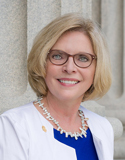
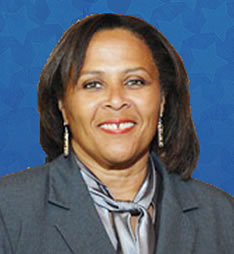
But Shealy noted that the proposal — and the fight for abortion rights in general— will be an “uphill battle,” given the priorities of the legislature.
“These legislators … want to have more babies, but none of them are willing to step up to the plate and be foster parents,” Shealy said.
Nor will they provide assistance for children born into impoverished families, Shealy continued. “My meals in school bill … has been held up for a year, because [the legislators] think everybody can pay.”
Matthews emphasized her colleagues in the Senate would rather pass “one iteration or another” of anti-abortion laws than even try to address hate crimes.
“It was easier to get a referendum on the lottery issue than it is on the abortion issue. This is where we are,” Matthews admitted.
If you are seeking an abortion
Meanwhile, South Carolina women are grappling with the realities of the state’s new abortion ban after six weeks – a time when most women don’t know they’re pregnant. Last month, the state Supreme Court reversed a January decision on a 2021 abortion ban when it upheld a new ban passed earlier this year.
“The first thing [someone seeking an abortion] needs to do is call us [Planned Parenthood] and get in very quick” to make an appointment, said Vicki Ringer, director of public affairs for Planned Parenthood South Atlantic (PPSAT), regardless of whether they can initially afford it. The earlier the interaction is, the more alternatives someone might have.
Justine, director of engagement at the Carolina Abortion Fund (CAF), who asked that her full name not be used, said that even after the six-week ban in S.C. went into effect, the organization’s mission “remains the same — to serve North and South Carolina callers.”
The scheduling can be “overwhelming,” Justine added, which is why CAF offers to counsel patients through it — alongside financial assistance with the procedure and everything it necessitates, including child care and travel outside of the state.
Location, especially in rural areas, also plays an important role in access to care. Fourteen of 46 counties in South Carolina don’t have an obstetrician gynecologist (OB-GYN), said Ringer. Ringer.
Either way, “there will be very few pregnant women who want an abortion who can get one in South Carolina,” she said, “so that will mean that we will have to help navigate other states for them.”
She said North Carolina is an option for those under 12 weeks of pregnancy, and Planned Parenthood providers might refer patients who are further along to states with looser restrictions, like Virginia, Illinois, Maryland, Washington D.C., and New York.
Many patients, Ringer said, are seeking an abortion because of “a fetal anomaly that has just been diagnosed with their 20-week scan,” but it all depends on their ability to travel out-of-state — and what they can afford.
Planned Parenthood and the Palmetto State Abortion Fund are two groups in South Carolina that can help with these costs. Typically, Planned Parenthood will give a patient a gas card, an Uber voucher or a bus ticket to a clinic in another city or state, Ringer said. She noted that Planned Parenthood does not cover the cost of plane tickets.
Another type of abortion available is the “self-managed abortion,” which is an at-home medication abortion done without a medical professional, sometimes referred to as “Plan C.” It is illegal under South Carolina law, despite the fact that, according to Ringer, “it has been used safely for 23 years” and “has less side effects than Tylenol.”
A Charleston City Paper article in 2022 referenced in detail the benefits and risks of a platform called PlanCpills.org, which “provides information on obtaining abortion medication in the U.S. and through online, international pharmacies.”
CAF has seen an extremely high volume of callers recently, according to Justine, the engagement director.
Watch out for misinformation
In times of need, callers might be more vulnerable to misinformation. Justine warned against the facade of Crisis Pregnancy Centers (CPCs), which are “organizations that seek to intercept women with unintended pregnancies who might be considering abortion,” according to a study published by the American Medical Association Journal of Ethics. But they can look like genuine abortion providers. “They have one goal,” Justine said. “And the goal is to dissuade you from seeking that [abortion] care,” she said.
According to a Crisis Pregnancy Center map, there are 35 statewide, in comparison to only three abortion clinics in South Carolina.
But the need for services always persists — even after restrictive legislation.
“People have been having abortions for as long as there have been people,” said Justine.
Levin is a reporter with the Charleston City Paper, where this story first appeared. Have a comment? Send to: feedback@charlestoncitypaper.com
Parent seeks to ban 93 books in Berkeley County

By Skyler Baldwin | One Berkeley County parent is challenging 93 books on the county’s school shelves on allegations of obscenity. But for now, the books are available.
Several Berkeley County School Districts (BCSD) officials didn’t return requests for comment and more information about 93 separate challenges made in May by the parent, whose identity couldn’t be independently verified.
But district spokeswoman Katie Tanner today said: “BCSD policy KNBA outlines the process for a parent/legal guardian to request the reconsideration of instructional materials. This policy is not new and is not unique to Berkeley County. … At this time, no reviews have been conducted and no books have been removed as a result of this process.”
Across the state, politically motivated censorship seems to be on the rise. Horry County Schools banned 12 books this year, according to news reports. The Greenville County Library considered banning 24 books and faced allegations related to LGBTQ+ censorship. Recently, state Superintendent of Education Ellen Weaver cut ties with the S.C. Association of School Librarians, citing concerns that the group had created a “hostile environment” in its opposition to removing books from school shelves.
The issue in Berkeley County arose Thursday when the American Civil Liberties Union of South Carolina (ACLU) released the results of a public records request that revealed a list of the 93 books targeted for censorship in BCSD classrooms and libraries.
“Book banning is an unconstitutional infringement on the First Amendment guarantee of access to information,” ACLU Executive Director Jace Wooodrum said in a statement. “Censorship remains deeply unpopular across the state and across the political spectrum, and we hope that the district will listen to parents, teachers, students and librarians who support the freedom to read.”
The challenged books in BCSD include several titles right-wing activist groups like Moms For Liberty have targeted in other parts of the state, including The Kite Runner, which was targeted for censorship last year in Beaufort County Schools, and Gabi: A Girl in Pieces, which was previously challenged in Horry County.
All of the challenged books are listed on BookLooks, a site commonly used by political interest groups. They were also challenged by a single individual, who reportedly is a parent of a student enrolled in BCSD. The parent filed 93 individual challenges, one for each book, on May 27.
“If someone is able to see all the books available in a school district, they can cross reference those books against BookLooks,” said ACLU spokesman Paul Bowers. “If they come across something deemed worthy of banning, they have a ready-made list of complaints they can bring to the school board. It’s basically a cheat sheet for banning books.”
Skyler Baldwin is a reporter with the Charleston City Paper.
In other recent news:
Gilliard, Tedder headed to Sept. 19 runoff in Senate 42 race. S.C. Rep. Wendell Gilliard of Charleston needed only 3% more of the vote to win the special Democratic primary for the Charleston-area S.C. Senate District 42 seat. Instead, he’ll face the second-place candidate, S.C. Rep. Deon Tedder of North Charleston, in a Sept. 19 runoff. Tedder got 39% of the vote Tuesday. S.C. Rep. J.A. Moore of North Charleston came in third with 15% of the vote, according to unofficial results. The winner of the Democratic primary will face Rosa Kay, the only Republican to file in this race, in November. The special election was the result of the resignation of former Democratic S.C. Sen. Marlon Kimpson of Charleston, who will take a job with the Biden administration.
Australian paramedics offer insights EMS Program. Six Australian paramedics were recruited in a new statewide program to help alleviate a crisis of staffing for rescue workers. One paramedic offered insight into the transition from Australia to Charleston.
S.C. Supreme Court says circuit judge shouldn’t have released killer. A Columbia circuit court judge who last year granted early release to a convicted killer did not have the authority to reduce the killer’s sentence, according to a new S.C. Supreme Court opinion. Why? Because the killer, who now will spend the rest of his 35-year term in jail, didn’t meet requirements from applicable statutes, the opinion said.
Abortions rose in most U.S. states, new study shows. In eight states, including South Carolina, the estimated number of abortions increased by 60% or more as patients crossed state lines seeking care.
Yip-yapper

Award-winning cartoonist Robert Ariail generally has a biting or funny comment about the great state of South Carolina in his weekly cartoon. This week, he has something to say about a 2024 presidential candidate. Love the cartoon? Hate it? What do you think: feedback@statehousereport.com.
Cut taxes by curbing gun violence
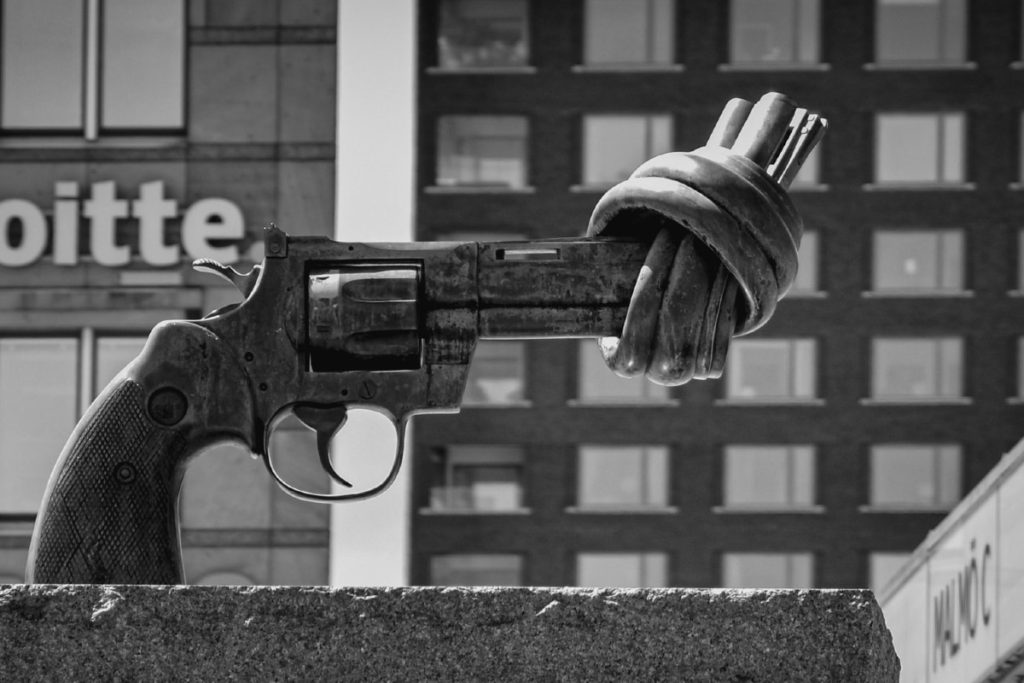
By Andy Brack | If South Carolina lawmakers were to take real and proactive policy steps to curb gun violence, your taxes would almost certainly go down.
One way or another, every man, woman and child in South Carolina pays $2,716 per year – that’s almost $14 billion a year – to deal with the costs of gun violence, according to a sweeping 2022 study by Everytown, a national gun safety organization.
 “What is clear from this report’s analysis is that while not every household has a gun, and while not all communities experience high levels of gun violence, we all bear the economic burden of injuries and deaths caused by firearms,” according to the report. “Roughly $12.62 billion in tax money per year pays for our country’s gun violence epidemic.
“What is clear from this report’s analysis is that while not every household has a gun, and while not all communities experience high levels of gun violence, we all bear the economic burden of injuries and deaths caused by firearms,” according to the report. “Roughly $12.62 billion in tax money per year pays for our country’s gun violence epidemic.
“Instead of funding education, social services, economic redevelopment grants, and so many other vital public goods from which we all benefit, we are spending precious funds on an epidemic that brings nothing of benefit and plenty of heartbreak and shattered lives.”
While the vast majority of costs identified in the study are soft quality-of-life costs related to suffering and loss, about $1 in every $5 of costs outlined in the report is hard, such as the amount spent on immediate and long-term medical care, ambulances, police, prosecutors, courts, jails and other parts of the criminal justice system.
“American taxpayers pay $30.16 million every day in police and criminal justice costs for investigation, prosecution, and incarceration,” the report said.
There are also costs related to work missed because of injury or death from gun violence and employer productivity losses.
“Employers lose an average of $1.47 million on a daily basis in productivity, revenue and costs required to recruit and train replacements for victims of gun violence,” the report said. “Society loses $1.34 billion daily in quality-of-life costs from the suffering and lost well-being of gun violence victims and their families.”
In the study, South Carolina ranked ninth highest in per capita costs among the 50 states.
“Not surprisingly, states with high levels of gun violence face higher associated costs, whereas states with lower levels of gun violence and strong common-sense gun laws face a lower financial burden,” the report noted.
As of Sept. 6, almost 30,000 Americans have died from gun violence this year, including more than 16,500 people from suicide, according to GunViolenceArchive.org. More than 13,000 American deaths from gun violence were homicides, accidents or defensive-related deaths.
In South Carolina, data show 277 victims died from gun violence since the beginning of the year as well as 37 suspects who were killed. Another 62 victims were injured. Some 186 suspects were arrested, according to the archive.
If South Carolina wants to get a better hold on reducing gun violence – and saving taxpayers the costs related to the deaths and injuries that accrue from shootings – it should take more proactive policy steps. Not only should it get rid of laws that allow people to carry weapons without permits, but it needs to require more stringent tests for people who want to buy a gun, including a waiting period. And years after the slayings at Emanuel AME Church in Charleston, legislators need to close loopholes that let people get guns who shouldn’t have them.
One thing is clear: If we do nothing to try to curb the violence, more innocent people will die. Toughening gun laws won’t stop all murders, but having better control would reduce the violence and improve safety across South Carolina.
Andy Brack is editor and publisher of Statehouse Report and the Charleston City Paper. Have a comment? Send to: feedback@statehousereport.com.
The S.C. Education Association
 The public spiritedness of our underwriters allows us to bring Statehouse Report to you at no cost. This week’s spotlighted underwriter is The South Carolina Education Association(The SCEA), the professional association for educators in South Carolina. Educators from pre-K to 12th grade comprise The SCEA. The SCEA is the leading advocate for educational change in South Carolina. Educators in South Carolina look to The SCEA for assistance in every aspect of their professional life. From career planning as a student to retirement assessment as a career teacher, The SCEA offers assistance, guidance, and inspiration for educators.
The public spiritedness of our underwriters allows us to bring Statehouse Report to you at no cost. This week’s spotlighted underwriter is The South Carolina Education Association(The SCEA), the professional association for educators in South Carolina. Educators from pre-K to 12th grade comprise The SCEA. The SCEA is the leading advocate for educational change in South Carolina. Educators in South Carolina look to The SCEA for assistance in every aspect of their professional life. From career planning as a student to retirement assessment as a career teacher, The SCEA offers assistance, guidance, and inspiration for educators.
- Learn more: TheSCEA.org
Watch out for Weaver and Big Brother in education
Editor’s Note: This editorial appeared Sept. 8 in the Charleston City Paper.
At best, freshman state Superintendent of Education Ellen Weaver now wants to be South Carolina’s education book nanny, instead of its policy leader. At worst, she’s becoming a fully actualized apparatchik who blindly kowtows to the Republican party line about curbing what kids can read.
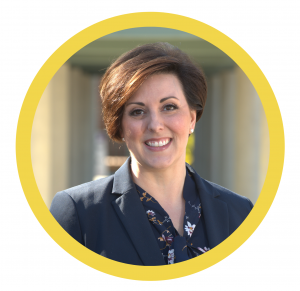
As reported across the state, Weaver has cut ties with the S.C. Association of School Librarians, saying she prefers to communicate directly with school librarians instead of partnering with the organization as it has done for 50 years.
Scary. If you think this smacks of Big Brother rather than people working together, you’d be right.
“It’s disappointing to me as a parent of an 8-year-old,” observed Jace Woodrum, executive director of the ACLU of South Carolina, “that our superintendent is against the freedom to read and the right to learn.”
In an Aug. 25 letter to the head of the school librarian group, Weaver — a graduate of conservative Bob Jones University — praised libraries but couched language to minimize professional qualifications of the very people trained to curate books for students. Instead, she snuck in religion: “A cooperative approach among parents, administrators, teachers, school staff, businesses, and faith and community organizations is the only way we will achieve the ambitious goals we have for the students of this state.”
Sounds nice, but it’s dangerous. Does it mean janitors can help pick books? Or does a vocal mini-minority of zealots trump the professional opinions of people who have college degrees on books in school libraries? Or it is really simpler: “We at the state Department of Education will tell you what to do. Don’t use your own brain.”
Weaver’s letter also criticized the group for speaking out against library censorship. But if you’re a librarian and you have a nanny state and a handful of helicopter parents shaking the Bible about a few books, who else should stand up for the state’s children but those trained to vet educational materials?
Weaver, an acolyte of former GOP U.S. Sen. Jim DeMint, long has written white papers and published policy positions for the conservative Palmetto Promise Institute advocating very conservative approaches to government. Now she’s in the position to make them reality — and we should carefully watch what she is up to.
What’s happening to the state’s school librarians is likely to be Weaver’s first salvo. If you value freedom, education and independent thought, you should let her know that you vehemently disagree with her narrow approach.
Little white building
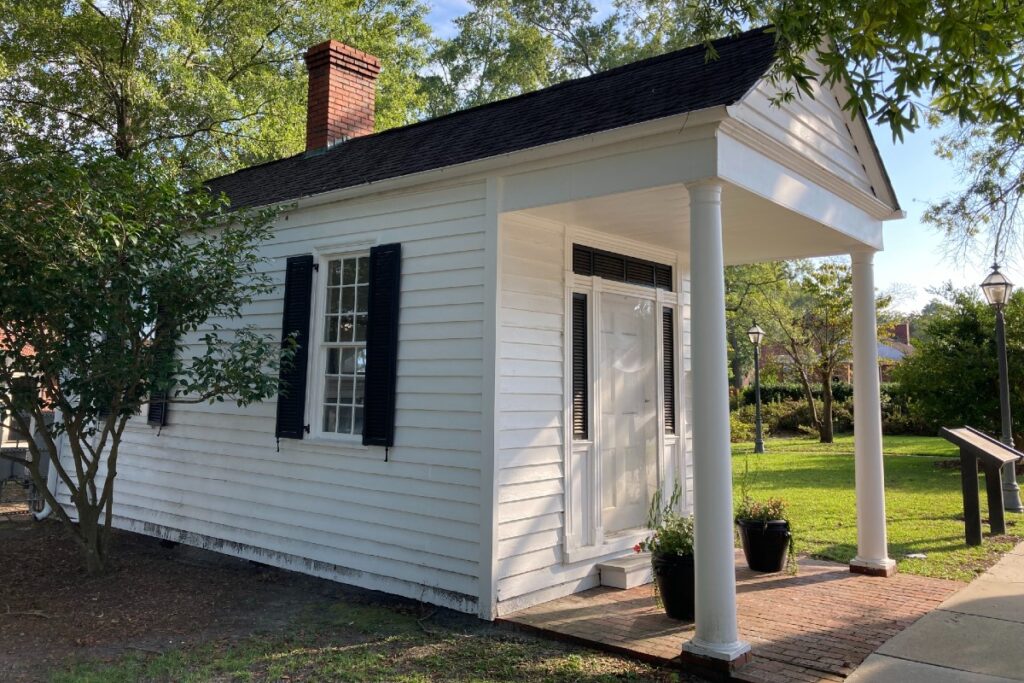
A longtime reader sent in this South Carolina photo. But where is it and what is it? Send us your guess of what this photo shows – as well as your name and hometown – to feedback@statehousereport.com.
 Last week’s “The top of an old building,” shows the top of the Carnegie library in Union.
Last week’s “The top of an old building,” shows the top of the Carnegie library in Union.
Allan Peel of San Antonio, Texas, shared this: “It is the oldest of 14 South Carolina Carnegie Libraries that were built, in part, using funds awarded to the recipients by the Carnegie Corporation of New York, a philanthropic fund established by Andrew Carnegie to support education programs across the United States, and later the world. … In 1905, citizens of Union County purchased the lot for the building and raised an additional $3,500. In 2009, Union’s library was named the Best Small Library in America by the Library Journal.”
Others who correctly identified the library were Jay Altman and Elizabeth Jones, both of Columbia; Bill Segers of Hartsville, Pat Keadle of Wagener; David Lupo of Mount Pleasant; George Graf of Palmyra, Va.; Rene McDaniel of Rock Hill, Travis Kimbrell of Fort mill, and Stanley Smith.
>> Send us a mystery picture. If you have a photo that you believe will stump readers, send it along (but make sure to tell us what it is because it may stump us too!) Send to: feedback@statehousereport.com and mark it as a photo submission. Thanks.
Send us your thoughts
We encourage you to send in your thoughts about policy and politics impacting South Carolina. We’ve gotten some letters in the last few weeks – some positive, others nasty. We print non-defamatory comments, but unless you provide your contact information – name and hometown, plus a phone number used only by us for verification – we can’t publish your thoughts.
- Have a comment? Send your letters or comments to: feedback@statehousereport.com. Make sure to provide your contact details (name, hometown and phone number for verification. Letters are limited to 150 words.
- ORDER NOW: Copies are in Lowcountry-area bookstores now, but if you can’t swing by, you can order a copy online today.
- Now available as an e-book!
ABOUT STATEHOUSE REPORT
Statehouse Report, founded in 2001 as a weekly legislative forecast that informs readers about what is going to happen in South Carolina politics and policy, is provided to you at no charge every Friday.
- Editor and publisher: Andy Brack, 843.670.3996
Donate today
We’re proud to offer Statehouse Report for free. For more than a dozen years, we’ve been the go-to place for insightful independent policy and political news and views in the Palmetto State. And we love it as much as you do.
But now, we can use your help. If you’ve been thinking of contributing to Statehouse Report over the years, now would be a great time to contribute as we deal with the crisis. In advance, thank you.
Buy the book
Now you can get a copy of editor and publisher Andy Brack’s We Can Do Better, South Carolina! ($14.99) as a paperback or as a Kindle book ($7.99). . The book of essays offers incisive commentaries by editor and publisher Andy Brack on the American South, the common good, vexing problems for the Palmetto State and interesting South Carolina leaders.
More
- Mailing address: Send inquiries by mail to: P.O. Box 21942, Charleston, SC 29413
- Subscriptions are free: Click to subscribe.
- We hope you’ll keep receiving the great news and information from Statehouse Report, but if you need to unsubscribe, go to the bottom of the weekly email issue and follow the instructions.
- Read our sister publication: Charleston City Paper (every Friday in print; Every day online)
- © 2023, Statehouse Report, a publication of City Paper Publishing, LLC. All rights reserved.
















 We Can Do Better, South Carolina!
We Can Do Better, South Carolina!